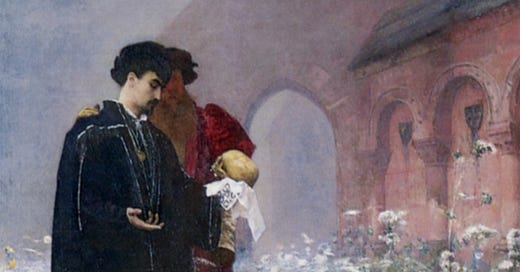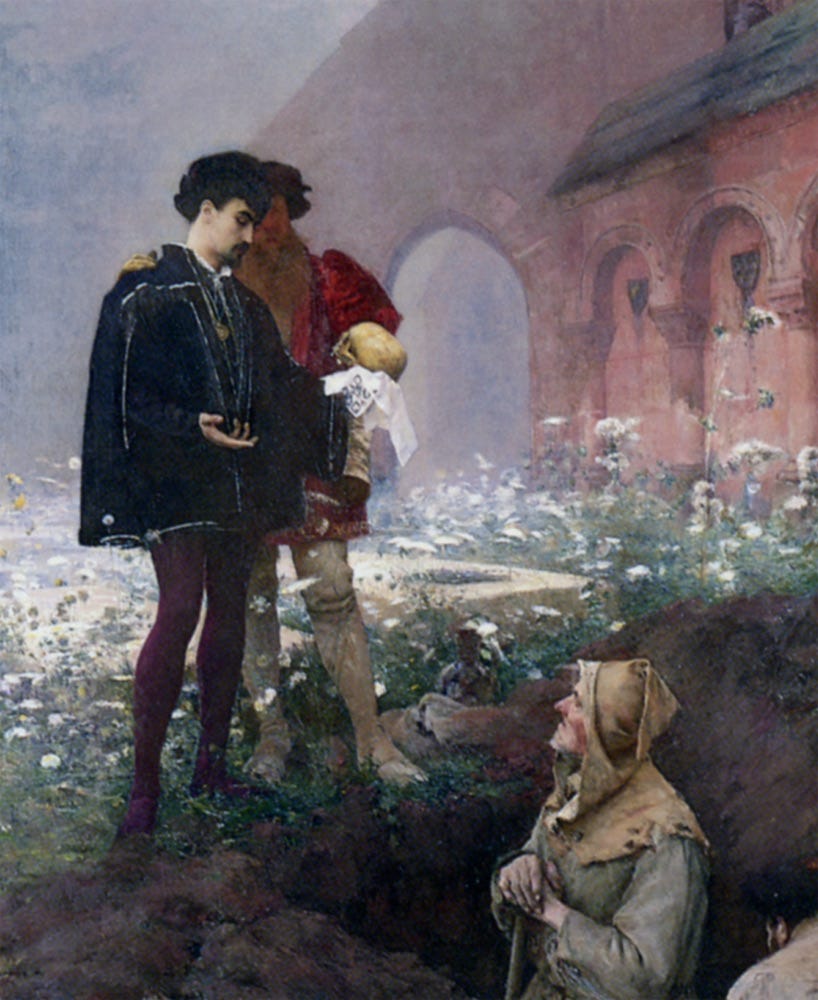The following is perhaps the most important passage in Shakespeare’s Hamlet:
We defy augury. There’s a special
providence in the fall of a sparrow. If it be now, ’tis
not to come. If it be not to come, it will be now. If it
be not now, yet it will come – the readiness is all.
Since no man of aught he leaves knows, what is ’t to
leave betimes? Let be.
In modern English, the passage reads:
There are no such things as omens. God is in control of everything, even a falling sparrow. If I die now, I won’t die later. If I die later, then I won’t die now. The only thing that matters is that I am ready for death when it comes. Since no man knows what he leaves behind after his death, then what does it matter if he leaves early? Just let it be.
The passage occurs towards the end of the play. Hamlet replies to his friend, Horatio, before his final dual with Laertes. Hamlet reflects on divine will, or destiny, coming to terms with a higher power beyond human understanding. In these words, he accepts his fate, realising that death is beyond anyone’s control.
It resembles the realisation that occurs for Meursault in his prison cell at the end of Camus’ The Outsider. A radical acceptance of death, and the awareness this brings.
I opened myself for the first time, says Meursault, to the tender indifference of the world.
There are no narratives or value systems existing beyond the ones we construct ourselves. These are but brief whirlpools in a divine river, flowing we know not where. We become God by separating ourselves from these constructions and joining the flow somehow.
Meursault wishes to be greeted with cries of hatred on the day of his execution. He hopes for this, I think, in order to know just how separate from the artifice of human society he has become. I imagine him walking to the gallows with the crowd hurling abuse and rotten fruits and vegetables, much like Christ on the day of his death. Camus described Meursault as the only Christ we deserve.
Describing the process towards psychological wholeness, Swiss analytical psychologist, Carl Jung wrote:
The person who achieves this goal possesses an attitude that is beyond the reach of emotional entanglements and violent shocks – a consciousness detached from the world.





Love it. Affirms for me why we often started with Hamlet while I facilitated with Shakespeare Behind Bars (and it also rings of Francis of Assisi's story about the nature of perfect joy).